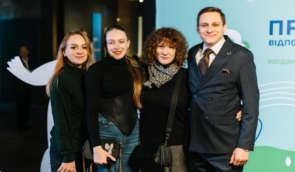Opening ceremony of international conference “Crimea Global. Understanding Ukraine through the South” takes place
On October 14, the international conference “Crimea Global. Understanding Ukraine through the South” began after the opening ceremony. The purpose of the event is to help other countries understand the Crimean Peninsula, the resistance of Ukrainians to Russian aggression, as well as agree on potential joint projects and initiatives with representatives of different countries.
Permanent Representative of Ukraine in the Autonomous Republic of Crimea Tamila Tasheva took the floor first — she thanked the participants from various countries who had come a long way for this event. Tasheva emphasized the importance of uniting different sectors of Ukrainian society at the conference — representatives of the public sector and non-governmental organizations gathered here today, thanks to which the project can be implemented.
“It is important to realize that de-occupation is not only about the return of territory, but first of all it is about the return of our people. Our citizens should have the right and opportunity to return to their homes in Crimea,” Tasheva said.
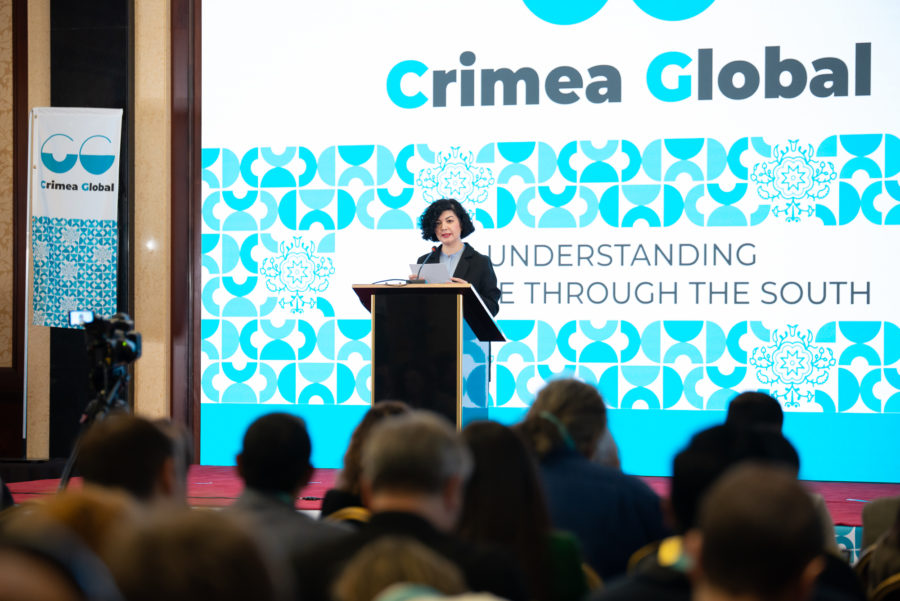 Tamila Tasheva
Tamila Tasheva In her speech, she also mentioned Deputy Chairman of the Mejlis of the Crimean Tatar People Nariman Dzhelyal who was present at the opening ceremony of the first summit of the Crimea Platform in 2021, for which he paid with freedom upon returning home to the occupied peninsula. Tasheva sees the joint actions of those present at the conference as an opportunity to develop mechanisms that will protect against crimes and aggression.
Chairman of the Verkhovna Rada of Ukraine Ruslan Stefanchuk also addressed the participants and noted that the state was currently experiencing the greatest aggression known to the world since the end of World War II. He is convinced that many world countries now take a short-sighted position, believing that the Russian-Ukrainian war is only a regional conflict, but its end will actually determine the future world security architecture.
“According to some countries, by sitting down at the negotiating table now, Ukraine will be able to return the world to its usual state, and the turbulent period will pass. However, they forget that this unprecedented war is not a regional conflict,” Stefanchuk noted.
Next, Tetiana Pechonchyk, the head of the Human Rights Center ZMINA, spoke, emphasizing that the history of every state has its turning point which determines the future trajectory of the country’s development. In her opinion, such an event for Ukraine was Russia’s illegal occupation of Crimea and parts of the eastern territories in 2014.
“We must understand that there will be no world security without the victory of Ukraine. Today, all of us, together with the support of the countries of the Global South, must contribute to building new ties and initiatives to ensure the punishment for the Russian Federation,” Pechonchyk said.
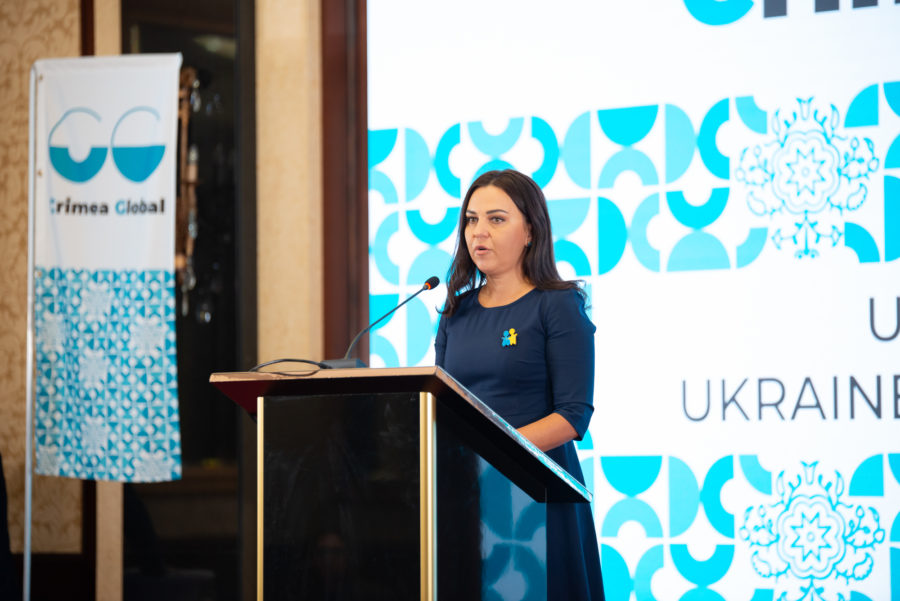 Tetiana Pechonchyk
Tetiana Pechonchyk The war between autocracy and democracy is ongoing now, for which Ukrainian military personnel give their lives, she underscored.
Maksym Subkh, Special Representative of Ukraine for the Middle East and Africa, believes that since the beginning of the Russian full-scale invasion of Ukraine, the Ukrainian authorities have demonstrated an unprecedented intensification of contacts with the Global South countries.
“We are far from our partners in the Global South countries geographically, but we are close mentally,” Subkh said.
Yulia Svyrydenko, First Deputy Prime Minister of Ukraine, also addressed the audience. She pointed to the current importance of the issue of the future recovery of Crimea, including energy, transport, construction and IT sectors.
“Ukraine is the most heavily mined country in the world now, which also has an impact on global food security. To overcome this challenge, we must cooperate with the Global South countries, in particular with Cambodia. Together, we will be able to make Ukrainian land safe,” Svyrydenko believes.
The next speakers were Abdulrazak Gurnah, winner of the Nobel Prize in Literature for 2021, Tawakkol Karman, winner of the Nobel Peace Prize for 2011, and Oleksandra Matviichuk, winner of the Nobel Peace Prize for 2022. They all emphasized the need to hold Russia accountable for bloody human rights violations, murders and illegal abductions. In addition, the similarity of the struggle against the Russian Federation of the Ukrainian and Syrian people was underscored, which demonstrates the closeness of Ukraine’s experience with the Global South countries.
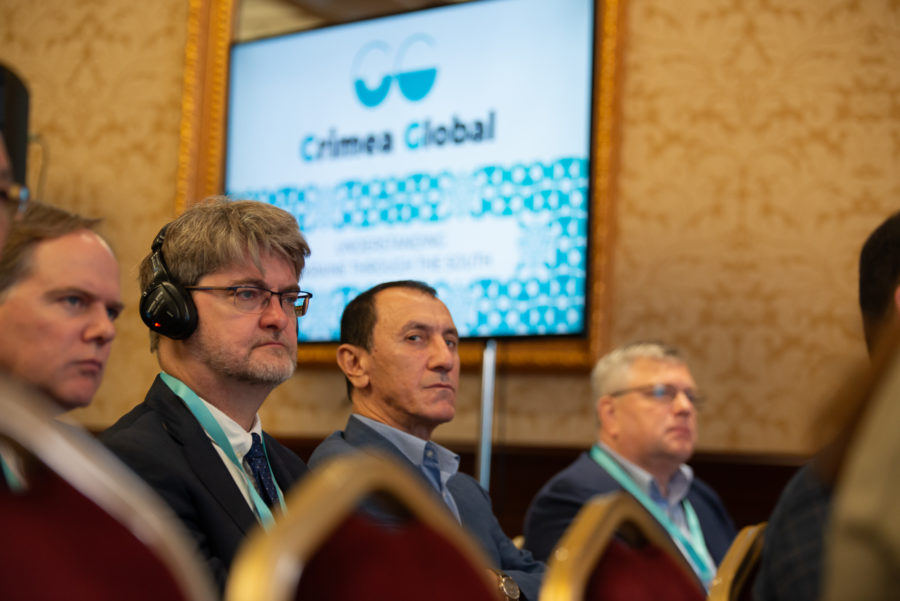
Leader of the Crimean Tatar people Mustafa Dzhemilev delivered the closing speech at the opening ceremony. He emphasized that the Crimean Tatars had been subjected to unacceptable persecution, kidnapping, murder and torture for many years.
He noted that many world countries decided to take a neutral position or openly support the enemy when the full-scale invasion had started. Such countries take advantage of their indifference, continuing profitable trade with the aggressor, Dzhemilev believes.
“The Crimean Tatar people have been fighting for their rights for decades. First, we were subjected to illegal deportation by the USSR in 1944, now Russia cynically violates our rights and commits terrible atrocities,” Dzhemilev said.
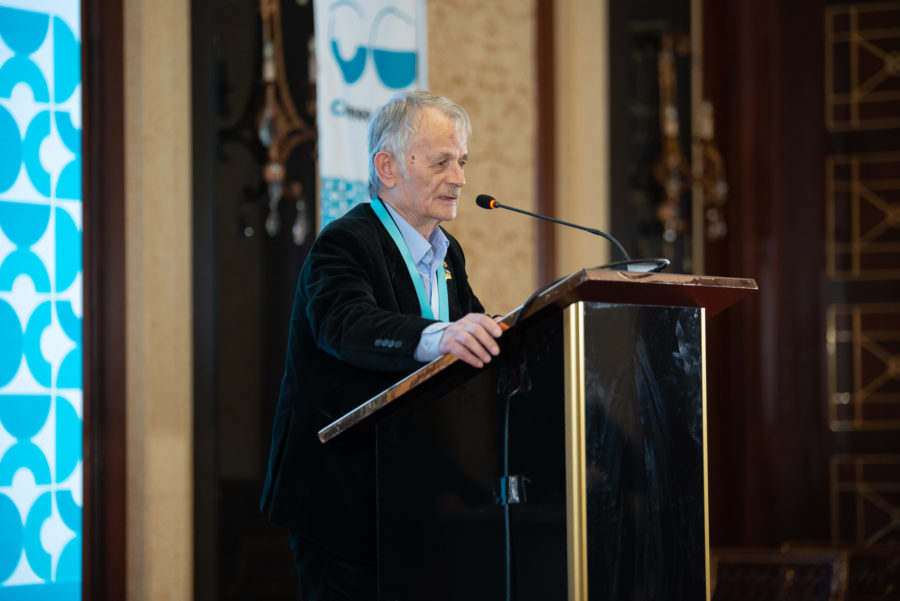 Mustafa Dzhemilev
Mustafa Dzhemilev The conference is attended by representatives of various world countries, including India, Indonesia, Qatar, Malaysia, Nicaragua, Uruguay, Kenya, the Philippines, Turkey, Austria, Estonia, Argentina, Mexico, Colombia, Sudan, Italy, Chile, representatives of the opposition to the governments of Iran and Syria living outside these countries, as well as other countries.
ZMINA joined the organization of the conference as part of the project “Crimea and the world: understanding Ukraine through the South” with the support of the International Renaissance Foundation
If you have found a spelling error, please, notify us by selecting that text and pressing Ctrl+Enter.




